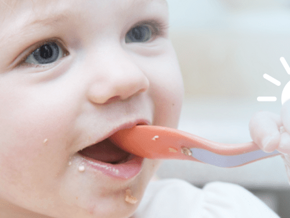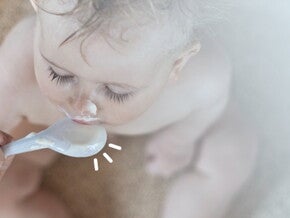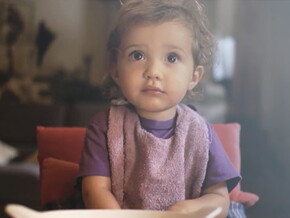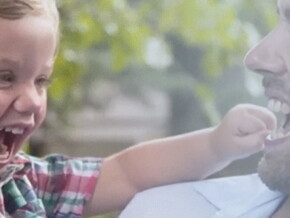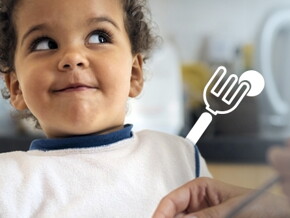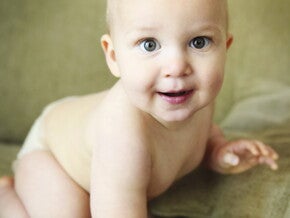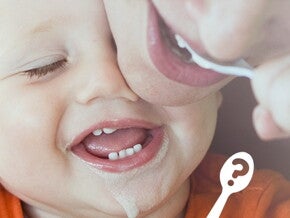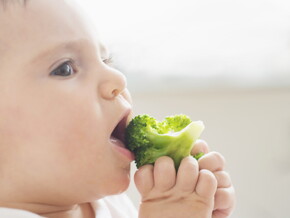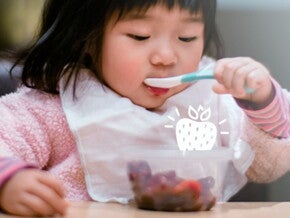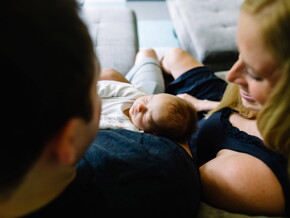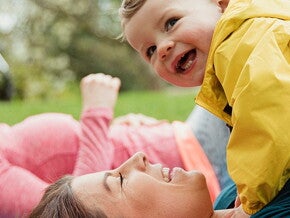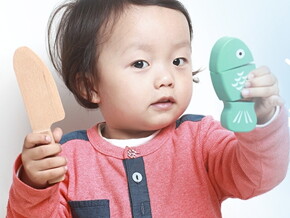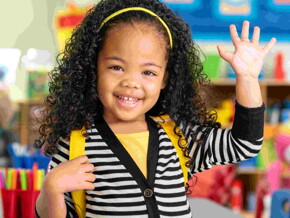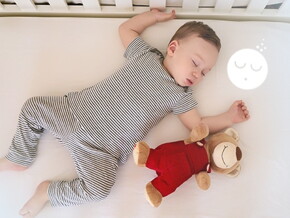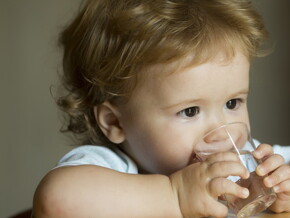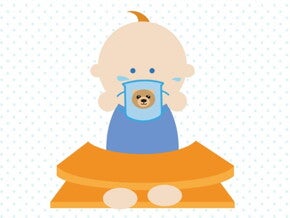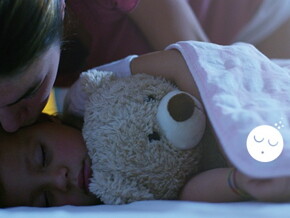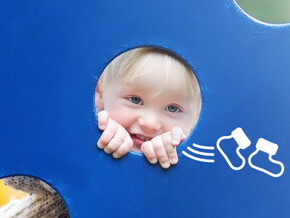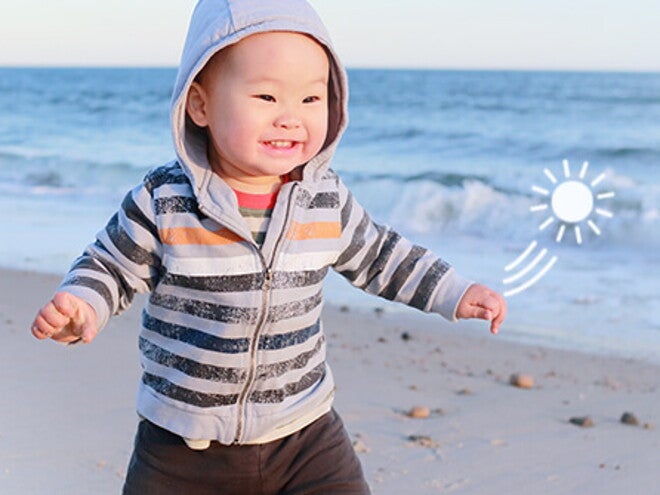
Staying active, staying healthy
As your baby meets new physical milestones, they’ll be capable of taking part in lots more activities. Staying active as a toddler establishes a pattern for life-long activity, which contributes to their healthy growth. One exciting aspect of their strength, balance, and agility improving is that it means more play! Indeed, once they’re on the move, you may find you’re moving a lot more too, keeping up with them. If they’re already walking, then running won’t be far off.
Play brings fun and laughter, but also lots of benefits. It helps stimulate brain development, introduces toddlers to problem-solving, allows them to interact with others, and develops confidence. Blocks and soft toys, for example, can help to develop fine motor skills and hand-eye coordination.
Giving them plenty of opportunities to play is very important. Experts recommend a minimum of one to three hours of activity each day, including both structured and unstructured, or free, play. This doesn’t have to happen all at once, so short play sessions throughout the day are okay. Remember that this is the minimum amount of time. Most toys can be part of both structured and unstructured play, depending on how they are used.
Structured play: You, or another adult, decide what games your little one will play, or which toys they’ll interact with.
Benefits: Your support allows your toddler to do things they can’t do on his own. They learn by your example.
Examples: singing ‘action’ songs, copying games and puzzles, toddler classes such as music; and, when developmentally appropriate, team games such as soccer or gymnastics.
Free play: Your toddler sets the agenda for unstructured play, but you may still need to put some toys out for them to choose from. They’ll make up the game as they go.
Benefits: Allows your toddler to explore, imagine, and be creative.
Examples: pretend play, dressing up, playing in water or sand, playground play (slides, swings, tunnels, climbing etc).
Firsts in the second year
During their first 12 months, your baby may have tripled their birth weight. Over the next year, physical growth begins to slow down. They may only gain 1.5-2.5kg (3-5lbs) between their first and second birthdays. Although their growth may have slowed, their brain is busy developing lots of new skills, including walking and talking.
First steps: If your toddler’s not already walking, chances are they will be soon. Those much-celebrated first steps will be unsteady at first so be prepared for a few trips and tumbles. They’ll gradually become more confident.
Help them out: Once they can walk, encourage them to walk with you as much as possible. It will slow you down but it’s a great way for you both to get some exercise. Enjoy playing lots more physical games with them now that they’re up on their feet.
First “conversation”: Even if they don’t talk back yet, your little one can understand much of what you say to them. They will learn the meanings of words from you before they can say them. Following your instructions is another matter! During their first year they loved the sounds of baby talk but now it’s time to move on.
Help them out: Use simple words, speak slowly, and repeat phrases. They’re learning language skills from you and other caregivers so talk, talk, talk. Repeat words at mealtimes, such as “more” and “done” to equip them with the language they need to let you know when they’re hungry or full.
First “mini-me” moment: You are your toddler’s role model for everything they say and do.
Help them out: Dance, or move around, and enjoy watching them try to copy you. Hold up your hand for a “high-five” and they may actively hit it. Say a word over and over, and they may try to say it too. This can be great fun—just watch out for any words or actions you’d rather they didn’t adopt!
Don’t worry if your toddler hasn’t quite reached these milestones yet—all babies are unique and develop at their own pace. If you’re concerned, speak to your healthcare provider.
Sources
Ertem IO, Krishnamurthy V, Mulaudzi MC, et al. Similarities and differences in child development from birth to age 3 years by sex and across four countries: a cross-sectional, observational study. Lancet Glob Health 2018; 6(3):e279-91.
Okely AD, Ghersi D, Hesketh KD, et al. A collaborative approach to adopting/adapting guidelines – The Australian 24-hour movement guidelines for the early years (birth to 5 years): an integration of physical activity, sedentary behavior, and sleep. BMC Public Health 2017; 17(Supple 5):869. doi: 10.1186/s12889-017-4867-6.
Shelov SP & Altmann TR (Eds.). (2009). American Academy of Pediatrics. The complete and authoritative guide Caring for your baby and young child birth to age 5 (5th ed.). USA: Bantam Books.
Society of Health and Physical Educators (SHAPE). Active start: A statement of physical activity guidelines for children from birth to age 5. 2nd ed. Reston, VA: SHAPE America; 2009. Available at: https://www.shapeamerica.org/standards/guidelines/activestart.aspx (Accessed August 8 2018)
Tremblay MS, Chaput J, Adamo KB, et al. Canadian 24-hour Movement Guidelines for the Early Years (0-4 years): An integration of physical activity, sedentary behaviour, and sleep. BMC Public Health 2017; 17(Suppl 5):874 doi 10.1186/s12889-017-4859-6.
https://pathways.org/growth-development/toddler/milestones/ (Accessed August 8 2018)
https://pathways.org/topics-of-development/play/ (Accessed August 8 2018)
https://pathways.org/watch/parents-guide-structured-vs-unstructured-play/ (Accessed August 8 2018)



